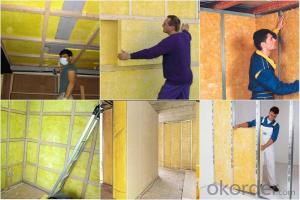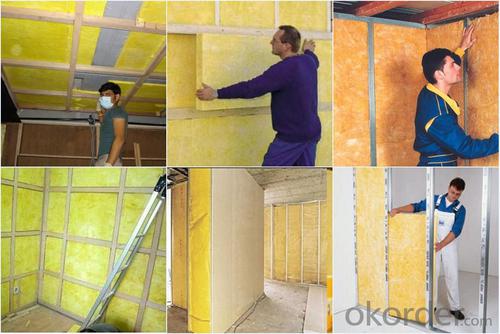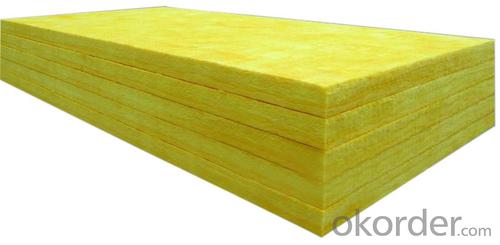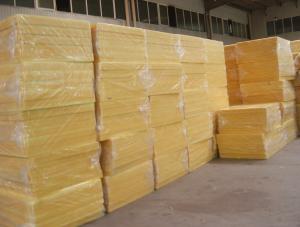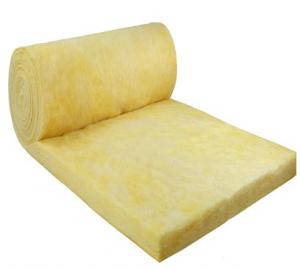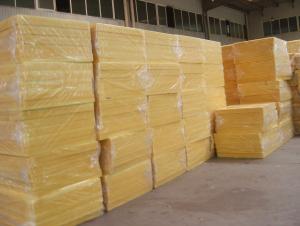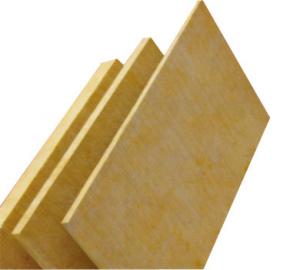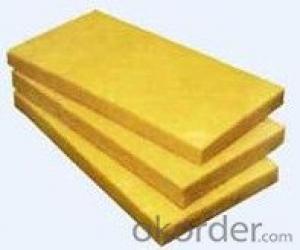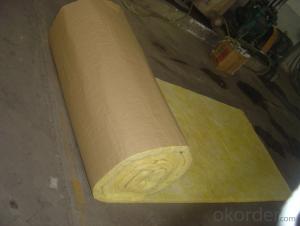Thermal Insulation and Fireproof Insulation glass wool price and glass wool insulation
- Loading Port:
- Tianjin
- Payment Terms:
- TT OR LC
- Min Order Qty:
- 5000 m²
- Supply Capability:
- 20000 m²/month
OKorder Service Pledge
OKorder Financial Service
You Might Also Like
1.Description of Glass Wool Blanket:
Glass wool, which belongs to glass fiber , is a kind of man-made inorganic fiber. It is made from fibrosis glass melt in wool shape, which belongs to inorganic fiber and fiber in its chemical ingredient. Its merit is better in shape, low density and volume, low in thermal conduction, better heat preservation and thermal insulation, fine sound absorption, corrosion-resistant and stable chemical property. Glass wool blanket, glass wool board, glass wool pipe, which made from glass wool, largely use in construction, chemical, electronic, electricity, metallurgy, energy industry and community with good performance in heat preservation, heat insulation, sound absorption.
2.Main features of Glass Wool Blanket:
1) Heat-preservation and heat-insulation, sound absorption and noise reduction
2) Damp proof property
3) Excellent fire proof performance
4) Thermal stability, high temperature heat-stability, durability, high temperature shrinkage resistance
5) Non-poison, not contain rock wool and not grow the mould
6) Thin and long inner fiber
3.Glass Wool Blanket Images:
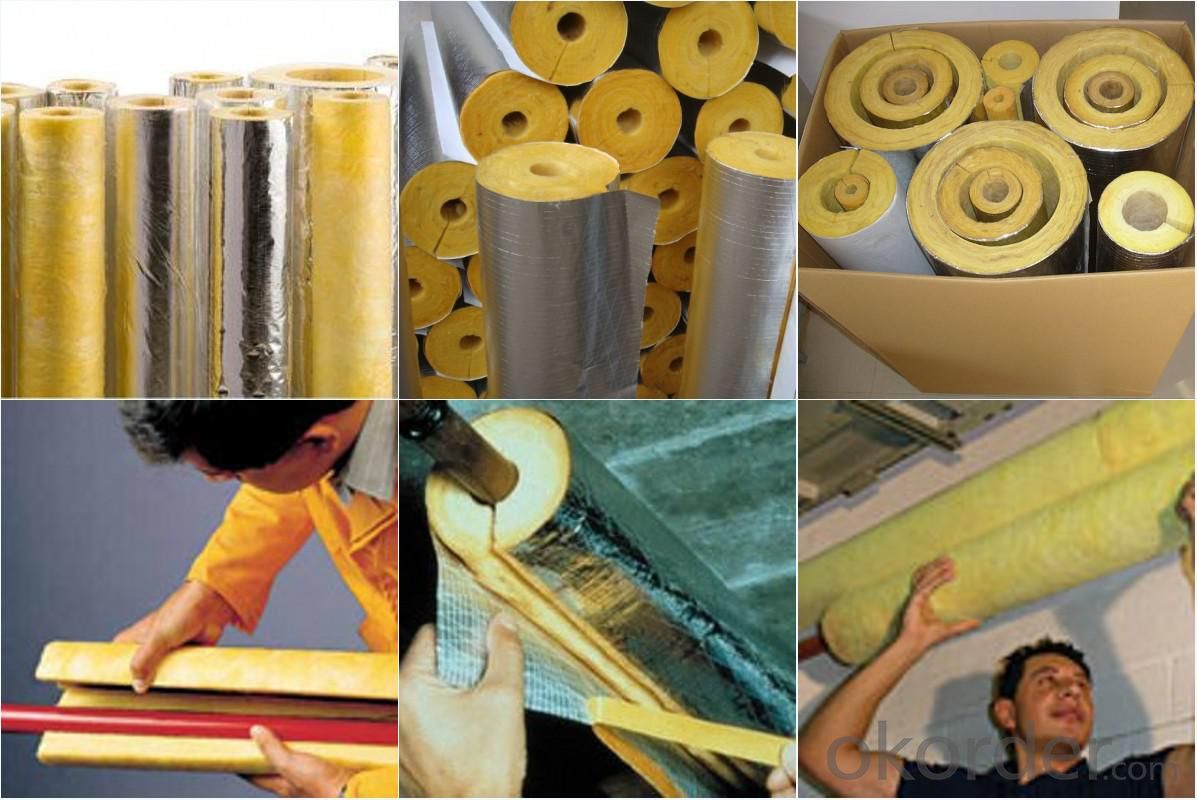
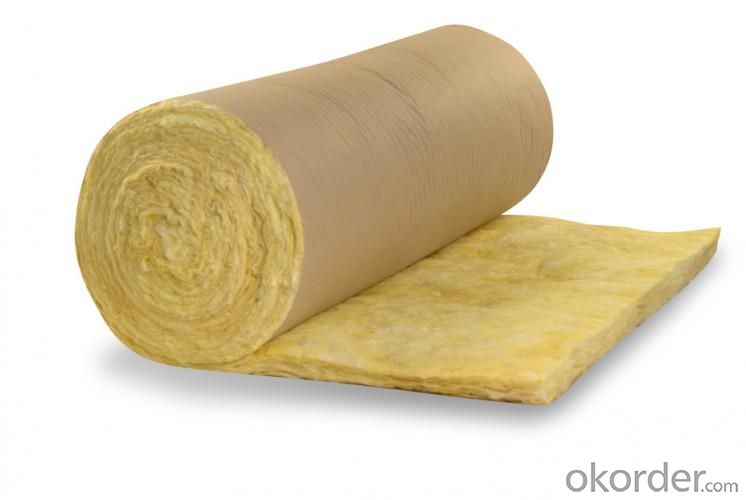
4. Glass Wool Insulation Blanket Technical Parameters:
Property | High/low temperature resistance, oil and fuel resistance, weathering resistance, O zone resistance etc. |
Shape | According to your requirement. |
Color | Any color is available ,according to your requirements. |
Material | NBR, CR, SBR, EPDM, IIR, NR, EP, Silicone, VITON etc. |
Hardness | 30-90ShoreA |
Delivery | In 10 days |
Packing | Plastic bag & carton box or according to your requirements. |
Application | Electronic field, industrial machine & equipment, house-hold appliance, telecommunication, automobile, medical equipment industry etc. |
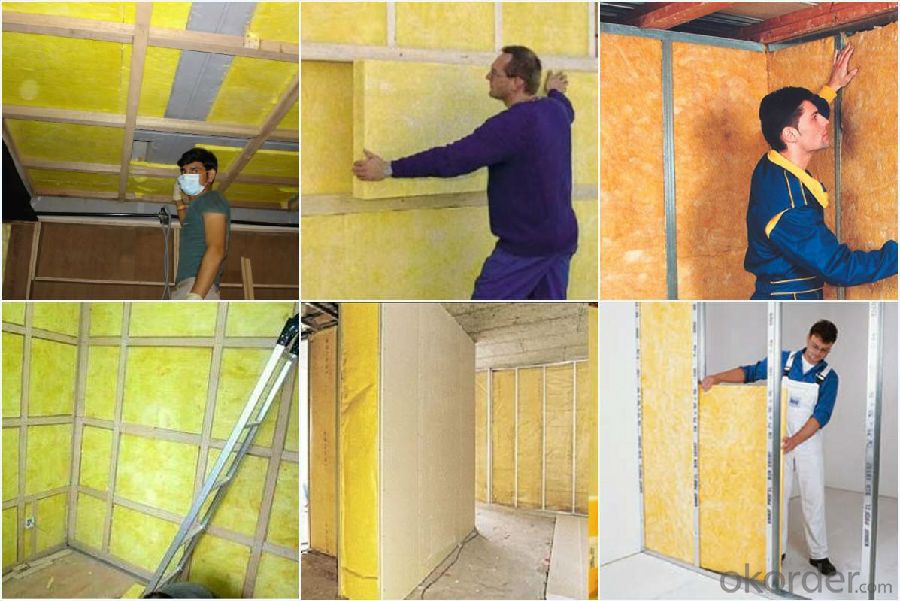
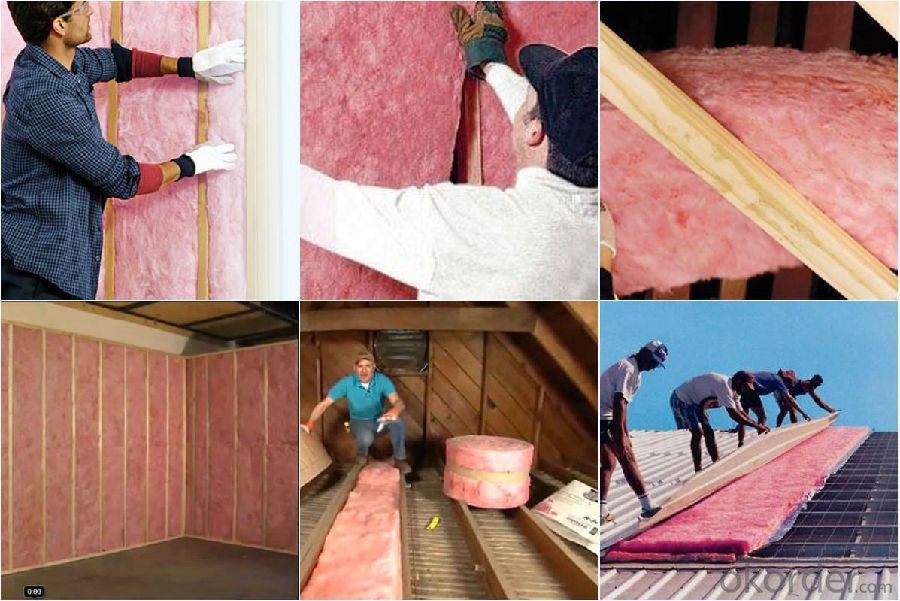
5.FAQ
We have organized several common questions for our clients,may help you sincerely:
①How about your company?
A world class manufacturer & supplier of Glass Wool Blanket is one of the large scale professional investment casting production bases in China,consisting of both casting foundry forging and machining factory. Annually more than 8000 tons Precision casting and forging parts are exported to markets in Europe,America and Japan. OEM casting and forging service available according to customer’s requirement.
②How to guarantee the quality of the products?
We have established the international advanced quality management system every link from raw material to final product we have strict quality test; We resolutely put an end to unqualified products flowing into the market. At the same time, we will provide necessary follow-up service assurance.
- Q: Can fiberglass mat tissue be used for creating molds?
- No, fiberglass mat tissue is typically not used for creating molds. It is more commonly used for reinforcing fiberglass laminates and composites.
- Q: How does fiberglass mat tissue perform in terms of air permeability?
- Fiberglass mat tissue has low air permeability, meaning it restricts the flow of air.
- Q: How does the thickness of fiberglass mat tissue affect its flexibility?
- The flexibility of fiberglass mat tissue is directly influenced by its thickness. In general, thinner mat tissue exhibits greater flexibility in contrast to thicker ones. This is primarily because the thickness of the mat tissue regulates the level of resin absorption and the overall weight of the material. Thinner mat tissue allows for a higher saturation of resin, thereby enhancing its flexibility. Moreover, the reduced weight of thinner mat tissue facilitates easier bending and shaping. Conversely, thicker mat tissue is less flexible due to its lower capacity for resin absorption and heavier weight. Consequently, bending or shaping thicker mat tissue may necessitate more force or effort when compared to thinner counterparts. Hence, the thickness of fiberglass mat tissue plays a pivotal role in determining its flexibility.
- Q: Are there any environmental considerations when using fiberglass mat tissue?
- Yes, there are several environmental considerations when using fiberglass mat tissue. Firstly, the production of fiberglass mat tissue involves the extraction and processing of raw materials, which can have a negative impact on ecosystems and contribute to air and water pollution. Additionally, fiberglass mat tissue is not biodegradable and can contribute to landfill waste if not properly disposed of. Furthermore, the manufacturing process of fiberglass mat tissue usually requires significant energy consumption, which can contribute to greenhouse gas emissions and climate change. Therefore, it is important to consider and implement sustainable practices when using fiberglass mat tissue to minimize its environmental impact.
- Q: Can fiberglass mat tissue be used for swimming pool construction?
- Yes, fiberglass mat tissue can be used for swimming pool construction. It is commonly used as a reinforcement material to provide strength and durability to the pool structure.
- Q: Can fiberglass mat tissue be used for insulating exterior walls?
- Insulating exterior walls can be done using fiberglass mat tissue. This particular type of insulation material is commonly chosen for its exceptional thermal and acoustic insulation properties. It is composed of fine glass fibers that are bonded together with a binder, resulting in a lightweight and flexible material. When applied to insulate exterior walls, fiberglass mat tissue is typically installed either between the wall studs or in the wall cavities. By trapping air within its fibers, it effectively reduces heat transfer and acts as a barrier against heat loss or gain. This insulation material plays a significant role in enhancing a building's energy efficiency by reducing the need for heating or cooling, thus leading to lower energy costs and carbon emissions. In addition to its insulating properties, fiberglass mat tissue is also resistant to moisture, mold, and mildew, which makes it suitable for external applications. It contributes to creating a more comfortable and healthier indoor environment by preventing the growth of harmful microorganisms and minimizing condensation. Furthermore, it provides an extra layer of safety to the building as it is fire-resistant. To summarize, fiberglass mat tissue is a versatile and efficient insulation material that can be utilized for insulating exterior walls. Its exceptional thermal and acoustic properties, resistance to moisture and fire, make it an excellent choice for improving the energy efficiency and comfort of buildings.
- Q: How is fiberglass mat tissue used in the production of water tanks?
- Fiberglass mat tissue, a type of non-woven fabric made from glass fibers, is commonly used in the production of water tanks due to its excellent strength, durability, and resistance to corrosion. Water tanks are typically made from fiberglass reinforced plastic (FRP), which is a composite material consisting of a polymer matrix reinforced with fiberglass. The fiberglass mat tissue plays a crucial role in this process as it serves as the reinforcement material. Firstly, the fiberglass mat tissue is cut into the desired shape and size to fit the mold of the water tank. It is then layered onto the mold, with the number of layers depending on the required strength and thickness of the tank. Once the fiberglass mat tissue is in place, a resin matrix is applied to impregnate and bind the fibers together. This resin can be polyester, vinyl ester, or epoxy, depending on the specific requirements of the water tank. The resin is typically applied using a spray or a roller, ensuring that it thoroughly saturates the fiberglass mat tissue. This process is often repeated multiple times to build up the necessary thickness and strength of the tank. After the resin has cured, the fiberglass mat tissue and resin composite becomes rigid and forms the structure of the water tank. The resulting FRP tank is lightweight, yet incredibly strong and durable, making it an ideal choice for storing and transporting water. The use of fiberglass mat tissue in water tank production provides several advantages. Firstly, it enhances the structural integrity of the tank, allowing it to withstand external forces such as pressure and impact. Secondly, fiberglass is highly resistant to corrosion, ensuring that the tank remains in good condition even when exposed to harsh environmental conditions or corrosive substances present in the water. Overall, fiberglass mat tissue is a critical component in the production of water tanks, providing strength, durability, and corrosion resistance, making it a reliable choice for various industrial, commercial, and residential applications.
- Q: Can fiberglass mat tissue be used for insulating crawl spaces?
- Yes, fiberglass mat tissue can be used for insulating crawl spaces. Fiberglass mat tissue is a versatile and commonly used material for insulation purposes. It is lightweight, flexible, and easy to install, making it suitable for crawl spaces which often have limited access and tight corners. Fiberglass mat tissue is also resistant to moisture, mold, and pests, making it an ideal choice for crawl spaces which are prone to these issues. Additionally, it provides excellent thermal insulation properties, helping to maintain a consistent temperature and energy efficiency within the crawl space. Overall, fiberglass mat tissue is a reliable and effective option for insulating crawl spaces.
- Q: How does the fiber content of fiberglass mat tissue affect its strength?
- The fiber content of fiberglass mat tissue directly affects its strength. A higher fiber content typically results in a stronger fiberglass mat tissue. The fibers provide reinforcement and structural integrity to the tissue, making it more resistant to breaking or tearing. Additionally, a higher fiber content enhances the overall durability and load-bearing capacity of the fiberglass mat tissue.
- Q: How does fiberglass mat tissue compare to spray foam insulation?
- Fiberglass mat tissue and spray foam insulation are two different types of insulation with their own unique characteristics and benefits. Fiberglass mat tissue is a lightweight and flexible material made from spun glass fibers that are arranged into a mat. It is commonly used in the construction industry for thermal and acoustic insulation purposes. Fiberglass mat tissue is relatively easy to install and provides good thermal resistance, helping to regulate temperature and reduce energy loss. However, it may not be as effective in sealing air leaks or filling gaps compared to spray foam insulation. On the other hand, spray foam insulation is a liquid mixture that expands into a foam after being sprayed. It fills gaps and crevices, creating an airtight seal that helps to prevent air leakage and reduce energy consumption. Spray foam insulation can also provide a higher R-value (a measure of thermal resistance) compared to fiberglass mat tissue, making it more efficient in terms of insulation performance. However, the installation process for spray foam insulation can be more complex and may require professional assistance. In summary, fiberglass mat tissue is a cost-effective and easy-to-install insulation option that offers good thermal resistance but may be less effective in sealing air leaks. Spray foam insulation, on the other hand, provides superior insulation performance and air sealing capabilities, but may require professional installation and can be more expensive. Ultimately, the choice between the two will depend on factors such as budget, specific insulation needs, and the desired level of air sealing.
Send your message to us
Thermal Insulation and Fireproof Insulation glass wool price and glass wool insulation
- Loading Port:
- Tianjin
- Payment Terms:
- TT OR LC
- Min Order Qty:
- 5000 m²
- Supply Capability:
- 20000 m²/month
OKorder Service Pledge
OKorder Financial Service
Similar products
Hot products
Hot Searches
Related keywords
